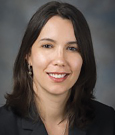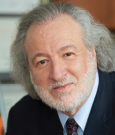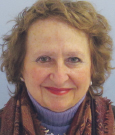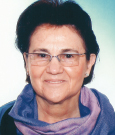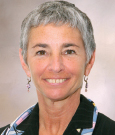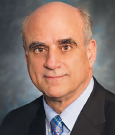The International Psycho-Oncology Society (IPOS) has partnered with the American Psychosocial Oncology Society (APOS) for the 17th World Congress of Psycho-Oncology, held in late July 2015 in Washington, DC. Its theme, “From National to Global: Implementing the Standard of Psychosocial Care in Oncology,” described the awareness that psychosocial care has become a recognized subspecialty of cancer care in the United States and many other Western countries—but regrettably this is not the case in many countries in the rest of the world, notably Africa and South America.
IPOS recently celebrated its 30th anniversary, and its more then 7,000 professional federated members work in over 60 countries to “foster the science and practice of psychosocial oncology to improve the care of people affected by cancer worldwide,” according to Luzia Travado, PhD, President of IPOS.
APOS has 450 practitioners and scientists in psychiatry, psychology, social work, nursing, clergy, and patient advocacy in this country, said its President, Michelle Corove Fingeret, PhD.
The Lisbon Declaration
The IPOS Human Rights Task Force has been working since 2008 to raise awareness and support for the relevance of psychosocial care as a human right. To that end, in November 2014, at the World Congress of Psycho-Oncology in Lisbon, the IPOS Board endorsed the Lisbon Declaration: Psychosocial Cancer Care as a Human Right. Furthermore, in 2015, IPOS added this declaration to its International Standards of Quality in Cancer Care, which now include: (1) Psychosocial cancer care should be recognized as a universal human right; (2) Quality cancer care must integrate the psychosocial domain into routine care; and (3) Distress should be measured as the sixth vital sign after temperature, blood pressure, pulse, respiratory rate, and pain. This standard has been endorsed by 75 organizations worldwide and, in 2013, was codified in a revision of the World Cancer Declaration.
Writing and approving a declaration are important, but it does not necessarily translate into easing the lives of actual patients with cancer, and the vast majority of them still suffer without significant help. Dr. Travado, Head of Psycho-oncology at Champalimaud Cancer Center, Lisbon, acknowledged that the bulk of the work lies ahead. “We have worked hard to influence national cancer policies to include psychosocial care and have succeeded in many countries, but we need to continue to pursue this goal and take further steps to turn this standard into international global clinical practice worldwide.”
William Breitbart, MD, Chairman, Department of Psychiatry and Behavioral Sciences, Memorial Sloan Kettering Cancer Center, New York, said that at least half of all patients with cancer experience psychosocial distress at some time during the course of their illness, and it must be addressed.
The Lisbon Declaration, which follows on the heels of the World Health Organization’s declaration of the Right to Health, is considered a landmark document to advance the human rights of all patients with cancer, especially those in underserved areas. (The human Right to Health states that everyone has the right to the highest attainable standard of physical and mental health, which includes access to all medical services, sanitation, adequate food, decent housing, healthy working conditions, and a clean environment.) The Lisbon Declaration stresses the need to:
- Strengthen health systems to increase effective cancer control
- Reduce the stigma of cancer and dispel the many myths surrounding the disease
- Establish universal access to screening and early detection
- Improve access to services across the cancer care continuum for all patients and all family members, who also suffer
- Ensure universal availability of pain control and distress management
- Improve the education and training of health-care professionals
“These commitments oblige governments to provide access, by means of relevant legislation, to psychosocial care for all cancer patients,” said Dr. Breitbart.
Even more, policymakers, in the health and political arenas, must be made to understand that palliative care is to be included as a critical component of cancer care—as important as screening, early detection, and active treatment. And beyond understanding of and agreement with the fundamental right to psychosocial care is the necessity to make sufficient funds available to carry out necessary implementation.
Children With Cancer
Andrea Patenaude, PhD, Director of Psychology Research and Clinical Services, Center for Cancer Genetics and Prevention, Dana-Farber Cancer Institute, and Associate Professor of Psychology at Harvard Medical School, described the human rights challenges in Africa, especially those facing children with cancer and their families.
“In many parts of the world, it is standard to deny children with cancer the right to know their diagnosis, the treatments they will receive, their current health status, and the likely outcome of their disease. They are desperately in need of concurrent psychosocial care provided by a caring, trusted adult with whom young patients can discuss their feelings and fears about the disease, its treatment, and possible separation from family,” stated Dr. Patenaude.
Basic human rights to psychosocial care, palliative care, and pain and symptom control do not exist in many parts of the world. Even worse are the countless examples of ethical mistreatment and downright cruelty. For example, Dr. Patenaude described what has happened at the Moi Hospital in the Rift Valley Province of Kenya. “We have reports that approximately half of the children of families that do not have health insurance [78% of parents of children with cancer in a recent study did not] are detained in the hospital—usually without the presence of their parents or much attention from hospital staff—after they have completed treatment until the parents pay the bill. This can last for 10 days to 2 weeks. If the child has died, the corpse is held hostage until the hospital bill is paid.”
This is a shocking and extreme denial of rights, said Dr. Patenaude, but there are many less dramatic yet equally important ethical issues in the psychosocial care of children with cancer. Gaps in the definition and understanding of minimal essential services that should be available to all children are wide and deep. As defined by the U.N. Convention on the Rights of the Child, the following items should be addressed: interventions to help children cope with the disease and its ramifications; the presence of parents during the child’s hospitalization; freedom from pain; age-appropriate explanations of what is and will be happening to the child; and interaction with peers and the opportunity to play and express emotions.
Cultural Beliefs, Unmet Needs
The Middle East has among the highest population growth rates in the world, which brings constant dynamic challenges. More than nine in ten people (93%) in the Middle East–North Africa region are Muslim. Lea Baider, PhD, Professor of Health Psychology and Director, Psychosocial Department, Assuta Medical Center, Tel Aviv, described what happens to many Muslim women in the Middle East when they get cancer.
“The most intimate events of life draw us into the health-care system and expose our own fundamental attitudes, moral values, and beliefs, as well as the beliefs and behaviors of those who love us and take care of us. Religion and belief systems affect psychological and physical health because they influence coping strategies, social and family behavior, and attitudes about health. They can—and do, among many Muslims—lead to fear, mistrust, silence in the face of illness, and the belief that cancer is a punishment visited upon women by Allah.”
Dr. Baider explained that in Muslim countries, belief systems and health rituals appear unscientific and contradictory when compared to evidence-based Western medical care. A pervasive culture of collective silence influences the way women perceive their bodies and their health. Nevertheless, to pursue any possible health change, it is vital to listen carefully to the traditional and religious values of women in Muslim societies. Then we could create not conflicts but integration and cooperation in health care.
Daisuke Fujisawa, MD, PhD, of the Department of Neuropsychiatry and Palliative Care Center, Keio University School of Medicine, Tokyo, who spoke for Luigi Grassi, MD, Professor and Chair of Psychiatry, University of Ferrara (Italy) Section of Psychiatry, who could not attend the meeting, said that psychosocial oncology services are available in many parts of the world—but still too few.
For example, in a country in Africa, there are only 10 oncologists for every 40 million people, and patients often need to travel 600 kilometers or more to a cancer center where there are only rudimentary services. He described what these services can and should do: treat all patients with cancer; ensure the right to enjoy the highest attainable standard of physical and mental health; and provide psychosocial services and interventions in the event of illness.
From Principles to Practical Care
Stephen Connor, PhD, Senior Fellow, Worldwide Hospice Palliative Care Alliance (WHPCA) and member of the World Health Organization Ad Hoc Advisory Group on Palliative and Long-Term Care, said that human rights advocacy must move from statements of principles and goals to practical clinical implementation. Efforts to advance psychosocial cancer care must be seen as a human rights issue and therefore acted upon rather than just talked about.
Over a million people die every week around the world, he said, and 80% of them have highly restricted access to or no pain relief. An estimated 40 million people worldwide are in need of palliative care at any one time, but less than 10% receive it. More than 75% of all countries provide little or no palliative care to patients with cancer.
“The need for palliative care has never been greater and is increasing rapidly because the world’s population is aging, and the incidence of cancer and other noncommunicable diseases is increasing. This is especially true outside North America, Europe, and Australia. The unmet need is enormous,” said Dr. Connor.
“WHPCA’s advocacy began with the Seoul Declaration in 2005, which called for access to palliative care as a human right. The group emerged from the Seoul meeting of Asian hospice networks as an alliance of national and regional hospice and palliative care associations. A series of global summits and further declarations on palliative care were held and created a strong international association.”
WHPCA believes that no one with a life-limiting condition should live and die with unnecessary pain and distress due to lack of access to quality care. Its objectives include being a strong, sustainable, and efficient global membership organization exclusively focused on hospice and palliative care; being an effective and powerful global voice and advocate for hospice and palliative care; providing integration of palliative care into country health systems, drawing on and supporting local technical expertise; and assisting national associations to integrate palliative care into national undergraduate and postgraduate health science curricula and health and social care workers’ training programs.
Goals of Palliative Care
Cokie Roberts, a journalist for National Public Radio and a survivor of breast cancer, introduced the plenary session panelists and asked them to describe their ideas about what is important with regard to palliative care and how it can be furthered. Jamie Von Roenn, MD, ASCO Senior Director of Education, Science, and Professional Development, said, “We need to educate people, we need to talk about death and dying, and we need to develop a model of integrated care.”
Small cancer centers and community oncology practices provide almost no palliative care at all—and that’s where 80% of cancer is treated in the United States. Moreover, because do-not-resuscitate orders and end-of-life care are regulated by states, there is no national uniformity about how such care is to be provided—and how much choice patients have about the way they approach death.
Joanne Wolfe, MD, Chief, Division of Pediatric Palliative Care, Department of Psychosocial Oncology and Palliative Care, Dana-Farber Cancer Institute, and Director of Palliative Care at Boston Children’s Hospital, described the Pediatric Advanced Care Team (PACT) that helps children and their parents through serious illness. “All our young patients receive interdisciplinary care (primary palliative care) early in their treatment, which is critically important when a child is diagnosed with cancer. The care team is ‘wrapped around’ the child and his or her family, so they feel protected and know they have knowledgeable and caring clinicians to whom to turn. Palliative care subspecialty consultation is reserved for more complicated cases such as the need for intensive symptom management.”
The Dana-Farber PACT team consists of clinicians who specialize in palliative care, symptom management, complementary medicine, spirituality-religion, social work, and community resources. These professionals consult with the patient, his or her parents, siblings, and the primary care team to ease pain and manage symptoms and side effects; foster communication among families and health-care providers; and coordinate inpatient, outpatient, and home-care services.
Dr. Wolfe said that caregivers at Dana-Farber have found social media very useful for children with cancer. “This is how they are used to communicating with one another, and we can use these media to educate people and to disseminate whatever messages we feel will help.”
Stein Kaasa, MD, Professor of Medicine, Institute of Cancer Research and Molecular Medicine, University Hospital of Trondheim (Norway), said that providers should be encouraging patients to think about palliative care as early in their treatment as possible, rather than shying away from discussions of death, dying, and hospice care. “And there’s no reason to use euphemisms or call palliation anything other than it is. It is a good thing, so let’s not change its name,” Dr. Kaasa added.
In Norway, palliative care has its own diagnosis-related group and is integrated into the billing system in most institutions. In this country, said Dr. Wolfe, Medicare and most private insurers do not reimburse for advanced planning conversations, but they soon will. “It’s on the horizon,” he noted. In the United Kingdom, spending on palliative care is “hugely varied,” said Irene J. Higginson, OBE, Director, Cicely Saunders Institute, Professor, King’s College London—the world’s first purpose-built institute for palliative care.
Dr. Higginson said that the purpose of palliative care is first to determine what patients and families need. “There are 13 or 14 common physical symptoms that we can help with, as well as innumerable psychosocial ones. This requires critical evaluation, and we must do it early. Even though we start it earlier in the UK than you do here, people still come to palliative care far too late in the course of their illness,” she explained.
Medical students at her institution spent time at a hospice, which made them more likely to recommend palliative care when they began practice. “In the United States, palliative care is being integrated into the medical curriculum, but it’s very slow,” concluded Dr. Von Roenn. She did note, however, that as it appears in medical schools, it follows in clinical practice. ■
Disclosure: Drs. Travado, Breitbart, Patenaude, Baider, Fujisawa, Grassi, Connor, Von Roenn, Wolfe, Kaasa, and Higginson reported no potential conflicts of interest.


